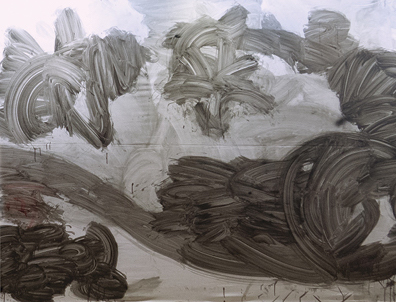
Postscripts from a City Burning
Sam Cheuk
Palimpsest Press, 2021
Review by Robert Colman
Hong Kong has stood as a kind of anomaly for many years: as a city colony of a nation (UK) well past its years of empire, and more recently as a room apart in the house that is China. At the same time that it has held these mantles, it has also been seen by the outside world as a financial centre, less a city of native citizens than a transactional, transitional port for international businesspeople.
Of course, nothing could be further from the truth, and Sam Cheuk powerfully expresses what it means to live within the dissonance of these outside pressures.
Cheuk’s new poetry collection, Postscripts from a City Burning, captures the frustration of losing one’s home to authoritarian forces by chronicling three months in 2019 after attempts by the government to pass an extradition bill which would have allowed China to legally arrest voices of political dissent in Hong Kong. While the extradition bill was withdrawn, these poems stress how the tension and fear among the populace did not, and could not dissipate, as fears of imprisonment remained.
The immediacy of this work is initially captured in the poem titles, which are not titles at all but the dates each poem attempts to encapsulate. From the start, Cheuk is channelling the mood around him, first saying “call it fidelity, maybe.” He continues:
But it is not love, neither can its name
be mercy. Bodies are falling out
of high rises, ripened with meaning.
That deaths are supposed to turn
into something, they fall like fruit.
(“10/29/19”)
The speaker goes on to talk of there being a villain in every story, wondering, however, if it is “the sun, if it brings the day,” as if to say perhaps this is just life, that living is its own terror.
Cheuk the poet stands at a remove from the protests in most of these poems, reporting the violence, capturing those headed into the fray sharing a meal with family, even giving voice to the disinterested—as one person says, “There is plenty of money to be made / in this chaos…”
In many of the poems in Postscripts from a City Burning, one sees that a piece of everyone is hidden from those they care about. One masked person, known to the speaker, pleads silently for the speaker not to expose him. A young person at dinner with their family leaves the table to go out to protest but doesn’t tell them. People from their curtained apartments “caw, / ‘Add fuel!’” into the night. Protestors being detained shout “I will not kill myself” to deny any attempt by authorities of lying to the public.
But the speaker is searching for some greater truth. Some of the most powerful poems are those that address a lover, in which the speaker can see bare truth or, in some moments, simply find a place to weep:
It’s okay,
My bully. This is sometimes
How we must hold on
Together, to hold, be held,
If it tires us into sleep
By one another,
for another night.
(“11/09/19”)
This is, as Cheuk sees, the one fully true place where intentions and fears need not be hidden, and where hope can be refuelled.
The author adds to the depth of these poems with the use of black and white photographs of the streets of the city, seemingly post-protest. Many of these feature bricks, which became a tool of the protesters, who would stack them to resemble mini-temples across streets to act as roadblocks. All of the photos are unpeopled, except for one of someone playing a portable keyboard on the street, wearing a horse-head mask. The photos suggest destruction, absurdity, abstraction, but also the potential for reconfiguration. It’s telling that the last photo is of cobbles neatly laid out on the street.
Indeed, the speaker ends on a note of hope, even if it is followed by two dates on which he is unable to write more than a couple words. This hopeful moment is an example of Cheuk’s capacity for lyric beauty:
Better a tattered cloth steamed hot
against our cheeks than nothing
at all about the mishmash fiction
of an existed town, recounted
thru binoculars from an elsewhere
terra firma, calligraphic script hanging
above ethereal mountain, before them
insinuation of greener pasture opening
Behind us, beckoning us back up the hills—
(“12/18/19”)
The tattered cloth as symbol of the current situation is striking, as is the military pacing of “cloth” and “hot” eased into the next line’s “nothing”—at which point the confusion of present reality elides into the “fictions” of what the city once was. Are we to consider memory fiction here, or does it refer to the fiction of history captured in stylized paintings? Either way, Cheuk is hopeful enough to wait and watch the citizens of this place one day wake from their “stony sleep” into some new, better life.
Robert Colman is a writer and editor based in Newmarket, Ont. His most recent book is Democratically Applied Machine (Palimpsest Press 2020).